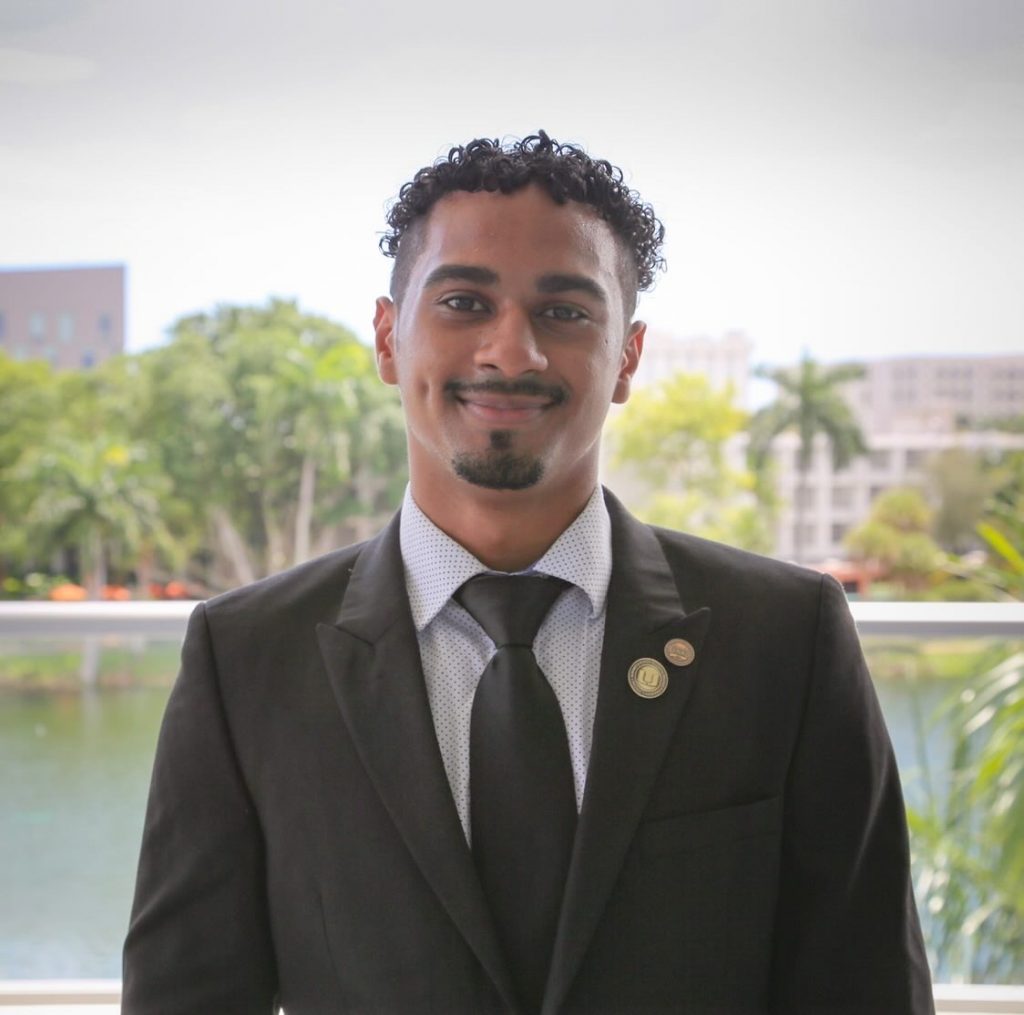

Answer Campus, a video game that enables players to explore social issues, is Fabrizio Darby’s capstone project for the Civic Scholars program. Users participate in a simulated college campus where they encounter conversations on topics surrounding race, gender and sexuality. Darby will graduate in May 2023 with his bachelors in biology and health science and with distinction as a Civic Scholar.
UM’s Civic Scholars program is a curriculum that guides students to become involved in their community through both service and in their education. Students who enroll in the Civic Scholars program complete three co-curricular service and leadership development experiences, four civic service learning courses, a reflection seminar and a capstone project.
The program, which is run through the Office of Civic and Community Engagement (CCE) and the Butler Center for Service and Leadership, aims to teach its scholars a myriad of soft and hard skills pertaining to service and civic engagement.
“So these are skills that are necessary for today’s job market: empathy, working with others, leadership development and gives them an opportunity to network both inside the classroom but also with our community,” said Marisa Hightower, associate director for the CCE.
In conjunction with these honed skills in service and leadership, students who complete the program also receive a certificate of achievement and recognition and notation on their transcript.
When enrolling in civic service learning courses, scholars have over 600 options ranging from courses in music to economics. These studies culminate to inform each students’ unique capstone project, the cornerstone of the Civic Scholars program.
The capstone project combines the interests of the Civic Scholar with the needs of the community to develop a meaningful project or internship experience.
Darby’s video game, Answer Campus, began as a personal passion project but has since developed into his unique capstone project to complete his Civic Scholar requirements as well as bridge his many passions around service.
Darby, once a creative writing major but now on the pre-medical track, said that the Civic Scholars Program has enabled him to continue to pursue his passion for writing. Darby’s capstone project, Answer Campus, gives Darby an outlet to write while also fostering social change.
“The students are actually working to impact change in the community, in a positive way, that fulfills their own needs but also builds capacity for the community partner,” Hightower said.
While the Civic Scholars program’s unique curriculum encourages students to get involved in their community through hands-on service, they also encourage their students to be more reflective of their civic involvement.
Students meet frequently with program advisors and complete the five week Reflections Seminar which requires students to present their capstone project at the end of the program.
“I feel like it’s easy to volunteer just for the sake of volunteering or volunteer because it looks good, but the reflection aspects of the Civic Scholars program force you to put everything into perspective,” Darby said.
Students can enroll in the program by emailing Alli Griffiths, the Civic Scholars graduate assistant, at civicscholars@miami.edu or submitting a request to join the Civic Scholars Engage page.
Noah Frankel, a sophomore studying public administration and sociology, got involved with the Civic Scholars program in his first year. He completed one of his four civic learning courses on the black literary imaginary and participated in the Atlantic Coast Conference (ACC) Leadership Symposium at Syracuse University, a potential co-curricular experience.
“I started to feel more connected to UM as a university,” Frankel said.
Looking ahead, Frankel said he hopes to do his capstone project on the issue of homelessness.
“That can be a pretty big thing if you want it to be and I think they’ll give me an outlet to really create something for myself,” Frankel said.
Like Frankel, scholars can begin engaging in co-curricular service experiences in their first year.
First Year University (FYU), one of the eligible co-curricular experiences, is open to first year students within the first month of being on campus. The program is a series of discussions and off-campus volunteer opportunities that help introduce students to civic engagement. Applications to FYU open in August.
For students who are interested, Darby said to get involved early, talk to current civic scholars and to ensure they pursue something they want to do.
“The way I see it is just a more formal way of presenting what I was already doing and never like extra work,” Darby said.





